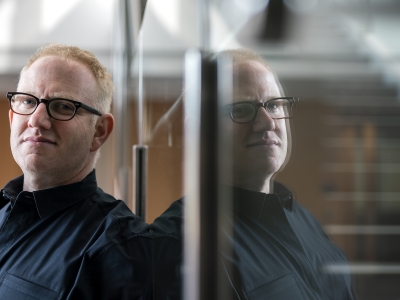By Lesley Barry
It’s little surprise that many incidents of sexual harassment happen in the workplace – whether those are film sets, office buildings, the House of Commons or an RCMP detachment.
Assistant Prof. Angela Dionisi of Carleton University’s Sprott School of Business has been closely tracking the #MeToo movement and her focus on workplace sexual harassment has led her to some unsettling insights.

The numbers themselves are disquieting. Recent Abacus survey findings made a strong case for Canadian workplaces as crucibles of power imbalances.
Twelve per cent of survey respondents reported that sexual harassment of women was “quite common” in their workplaces and another 44 per cent said it was infrequent but did happen. These perceptions were shared almost equally by men and women respondents.
Yet Dionisi thinks the problem is even bigger.
“The survey question didn’t define “sexual harassment,’’ but that term is usually interpreted to mean sexual coercion or pressure to comply with sexual requests,” she says.
“In fact, sexual harassment typically takes the form of hostile verbal and non-verbal behaviour, such as undermining or insulting a woman’s competence or addressing women in terms that disparage them. This type of behaviour is much more prevalent than explicit or overt forms of misconduct, so it’s very likely that the real numbers of sexual harassment at work are even higher than the survey suggested. It’s a huge problem.”
Harassment Follows You Home
While the damaging effects of sexual harassment on women workers are well documented, Dionisi has been conducting groundbreaking research suggesting these effects extend well beyond the workplace.
#MeToo, it turns out, could be #WeToo.
In one study, the husbands and romantic partners of women experiencing sexual harassment reported being less satisfied in their relationships, having higher levels of conflict and being less able to deal with or resolve those conflicts.
Even more troubling, another study—one funded by Carleton’s Centre for Research and Education on Women and Work—suggests that children of mothers experiencing workplace sexual harassment feel the effects of that harassment too.
Dionisi and Prof. Kate Dupré of the Psychology Department conducted a survey with several hundred mothers to discover whether such mistreatment could have consequences for their parental functioning.
“We learned that women who experience sexual harassment at work are more likely to behave in an authoritarian way with their kids, which means that they are more likely to use strict discipline and to be insensitive to their children’s emotional needs,’’ says Dionisi.
“They’re less likely to show high levels of affection or to be emotionally available to their kids, and they’re less likely to set respectful limits with their children. These impacts on women haven’t been documented before, and they expand the toll that sexual harassment takes.”
Looking at Understudied Victims
Dionisi was drawn to study organizational behaviour after taking a degree in Psychology and Sociology.
“As a discipline, organizational behaviour offers a unique approach in business because it’s informed by many different perspectives. It’s an amazing field, and it allows me to focus on issues around gender and workplace mistreatment that I’m passionate about.”
Understudied victim populations are Dionisi’s main area of concern. For example, she’s currently collecting data on women leaders who experience sexual harassment from men who nominally have less power.

“Typically people with higher status and power are the harassers,” she reports. “However, we know that gender connotes power. Thus, even if a woman holds a position of power in the organizational hierarchy, a male subordinate may hold social forms of power over her. In these situations you might see a man making sexually suggestive remarks to his supervisor, or questioning her competence because she’s a woman.”
Men also experience workplace aggression, most often from other men. Dionisi has researched a gender-based form of this known as “not-man-enough harassment,” in which a man might be ridiculed for things like choosing to take on domestic responsibilities or refusing to join in the objectification of women.
“In one particular study,” Dionisi says, “we found that witnessing a male colleague being harassed this way was associated with adverse psychological and physical health symptoms, as well as with work withdrawal and workplace deviance. Moreover, female witnesses also experienced lower levels of self-worth, which suggests that even when sex-based harassment is directed at a man, it communicates implicit patriarchal messages that are uniquely damaging to women.”
It’s About Power, Not Sex
These results also underline the fact that power, not sexual desire or attraction, is at the heart of all sexual and gender-based mistreatment. “This type of harassment is rooted in ideas that men and women are supposed to behave in particular ways and when they don’t, whether they’re a man or a woman, they’re punished for that.”
Given the pervasive damage of sexual harassment, Dionisi is happy that it’s currently in the spotlight. “Until we can acknowledge that this is going on and call it what it is, we’re not going to be able to make changes. There’s a receptivity to #MeToo stories that hasn’t been there for a long time, which is positive.”
And is change really possible? Dionisi is turning her attention to investigating what can encourage bystanders to intervene, so that sexual harassment can be stopped when it occurs. Nonetheless, larger shifts are needed.
“For a long time, the motivation for dealing with sexual harassment for many organizations may have been its negative impact on productivity: it wasn’t good for business,” she says.
“I’m hopeful, given the new levels of awareness, that organizations are motivated to do something about the issue because of the people involved and because it’s the moral, ethical thing to do.
“Nobody should have to go to work feeling afraid,” she continues. “Nobody should be demeaned and objectified on the job, and that’sthe reason we should be dealing with this. I think that we’ll really see change in sexual harassment when organizations have as the motivating goal the well-being of their employees and, by extension, of people more generally.
“It affects us all, whether we’re targeted or not.”
Wednesday, March 28, 2018 in Sprott School of Business
Share: Twitter, Facebook



